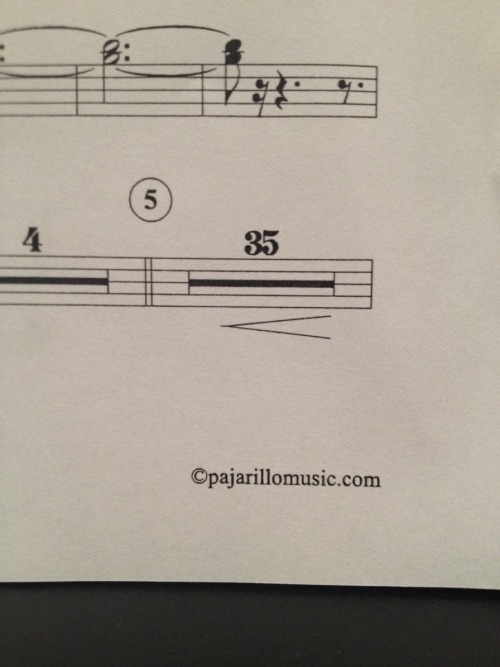Mjollydragon - Insert Witty Comment Here

More Posts from Mjollydragon and Others
Today in math class:

[Image description: a picture of a blackboard with math written on it. Below the math is the phrase “Pf: I’m too lazy,” followed by a box that signifies the ending of a proof.]
In school we had to read Romeo and Juliet. Now, I’m not sure if you know this, but it has a man and a woman in a relationship. Like, if you want to read that sort of thing, it’s fine with me, but I frankly thing it’s outrageous to indoctrinate our children into thinking that sort of lifestyle is normal. This was a PUBLIC school too. Is that what you want your tax dollars to pay for?
omfg so today I saw a man and a woman holding hands in public, i mean i don’t have anything against heterosexuality but don’t flaunt it in front of me, think of the kids omfg


rest rest REST REST REST REST REST REST
Wow, that was an amazing response.

Usually by inquiring why, as this does, based on the definition of feminism, seem a little bit strange.
You mean by saying that sex should be consensual? Because that’s basically all that feminists are saying.
I've never seen anyone try to control women like a group of feminists
This is by no means an original take, and I probably did not spend as much time as I should have editing the writing into being a coherent take, but:
In an awful lot of movies, Steve Rogers would have been right.
(Or, well, treated-as-right by the narrative, at least; in some of those movies many, many people would have died for his idealism, but this wouldn’t have been treated as wrong.)
When faced with this sort of explicit trolley problem, there are two main messages in pop culture: either you should never pull the level (you might kill a named character) or you should find a way to save everyone. For instance, take The Last Jedi: the narrative treats it as correct that Rose stopped Finn from sacrificing his life, not because his plan wouldn’t have worked, but more-or-less because we don’t trade lives. (Other examples: every fucking YA novel ever. ‘You can choose between your significant other... or saving the world.’ ‘Bye, world.’)
(She is absolutely trading lives, just not in the direction that, you know, saves people.)
(This is not to say that characters never trade off lives! The really obvious example here is that most movies are totally fine with killing the villain to protect innocents, although I’m pretty sure the message is generally closer to “the lives of villains don’t matter” than “pull the lever.” Characters will also sometimes do things like choose which of multiple locations to go to, which is generally understood in their narratives to be trading off lives at least a little. But when there’s this sort of explicit setup, the correct answer as portrayed in the narrative is almost never “pull the lever.”)
Now, I actually can think of counterexamples -- Wrath of Khan is very clear that you should pull the lever, for instance, and since I brought up The Last Jedi earlier I might as well mention Holdo’s choice at the end. But in said counterexamples, the person making the choice is almost always choosing to kill themself, not another person, and they usually would have died anyway.
But when characters are faced with the explicit choice of killing someone, maybe multiple someones, or letting far more people die, the treated-as-correct choice is almost never to kill them.
And I’m glad that we have a movie where that’s not the case.
Are you okay? Do you need someone to talk to?
and now I’m just mad. no one is answering me. great.
-
 freedomwolfgaming liked this · 6 years ago
freedomwolfgaming liked this · 6 years ago -
 psnerky liked this · 6 years ago
psnerky liked this · 6 years ago -
 jinxxiebabyboi-blog liked this · 6 years ago
jinxxiebabyboi-blog liked this · 6 years ago -
 oasislake76 liked this · 7 years ago
oasislake76 liked this · 7 years ago -
 thesilentassassin-blog1 liked this · 7 years ago
thesilentassassin-blog1 liked this · 7 years ago -
 bagumbo liked this · 7 years ago
bagumbo liked this · 7 years ago -
 that-one-guy-called-rey liked this · 8 years ago
that-one-guy-called-rey liked this · 8 years ago -
 lunacora liked this · 8 years ago
lunacora liked this · 8 years ago -
 hotsauced liked this · 8 years ago
hotsauced liked this · 8 years ago -
 xxxaicilxxx liked this · 8 years ago
xxxaicilxxx liked this · 8 years ago -
 t-alkyoudown liked this · 8 years ago
t-alkyoudown liked this · 8 years ago -
 observe-your-surroundings liked this · 8 years ago
observe-your-surroundings liked this · 8 years ago -
 autumn17meh liked this · 8 years ago
autumn17meh liked this · 8 years ago -
 digitalpoketmon liked this · 8 years ago
digitalpoketmon liked this · 8 years ago -
 foxy-love-song-blog liked this · 8 years ago
foxy-love-song-blog liked this · 8 years ago -
 thekiwifruit reblogged this · 8 years ago
thekiwifruit reblogged this · 8 years ago -
 pretty-ttekkamagwi liked this · 8 years ago
pretty-ttekkamagwi liked this · 8 years ago -
 shamlessinspiration liked this · 8 years ago
shamlessinspiration liked this · 8 years ago -
 pleasedontbetaken reblogged this · 8 years ago
pleasedontbetaken reblogged this · 8 years ago -
 dyingwalenoises liked this · 8 years ago
dyingwalenoises liked this · 8 years ago -
 zabocado liked this · 8 years ago
zabocado liked this · 8 years ago -
 magicalrulerkittycat liked this · 8 years ago
magicalrulerkittycat liked this · 8 years ago -
 dhbing reblogged this · 8 years ago
dhbing reblogged this · 8 years ago -
 zeitbedingt liked this · 8 years ago
zeitbedingt liked this · 8 years ago -
 ryan25-arohomo reblogged this · 8 years ago
ryan25-arohomo reblogged this · 8 years ago -
 ineverpostmydoodles reblogged this · 8 years ago
ineverpostmydoodles reblogged this · 8 years ago -
 midnightstan reblogged this · 8 years ago
midnightstan reblogged this · 8 years ago -
 magicalmelancholy-blog1 liked this · 8 years ago
magicalmelancholy-blog1 liked this · 8 years ago -
 midnightstan liked this · 8 years ago
midnightstan liked this · 8 years ago -
 lonelittlered-blog liked this · 8 years ago
lonelittlered-blog liked this · 8 years ago -
 lonelittlered-blog reblogged this · 8 years ago
lonelittlered-blog reblogged this · 8 years ago -
 manzanita-refrigerator reblogged this · 8 years ago
manzanita-refrigerator reblogged this · 8 years ago -
 nakashimatheninja-blog liked this · 8 years ago
nakashimatheninja-blog liked this · 8 years ago -
 mania-gay reblogged this · 8 years ago
mania-gay reblogged this · 8 years ago -
 mania-gay liked this · 8 years ago
mania-gay liked this · 8 years ago -
 pjfreak221b reblogged this · 8 years ago
pjfreak221b reblogged this · 8 years ago -
 pjfreak221b liked this · 8 years ago
pjfreak221b liked this · 8 years ago -
 skys-child liked this · 8 years ago
skys-child liked this · 8 years ago -
 mushroommoth reblogged this · 8 years ago
mushroommoth reblogged this · 8 years ago -
 mushroommoth liked this · 8 years ago
mushroommoth liked this · 8 years ago

